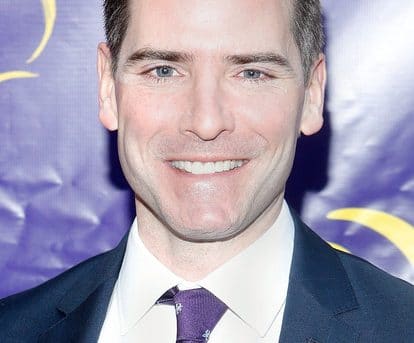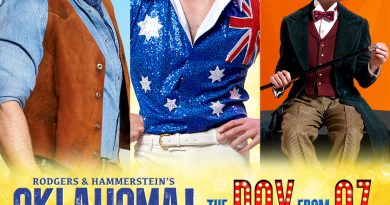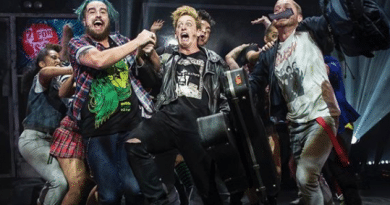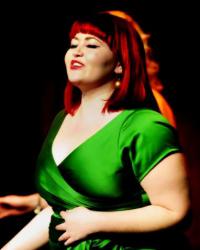Chad Beguelin on the magic of adapting Aladdin for the stage
Chad Beguelin, book writer of Aladdin the Musical, has had a rather magical Disney journey. Originally beginning work on the project with a much simpler brief, Beguelin eventually became a key member of the talented team who adapted Aladdin for the professional stage, restructuring and restoring the narrative elements to more closely reflect the original plan for the Disney movie.
In Australia for Aladdin’s Melbourne opening some months ago, Beguelin spoke to AussieTheatre about the collaborative process behind getting Aladdin ready for the stage, the power of accepting yourself for who you truly are, and the privilege of introducing new and young audiences to the magic of the theatre.
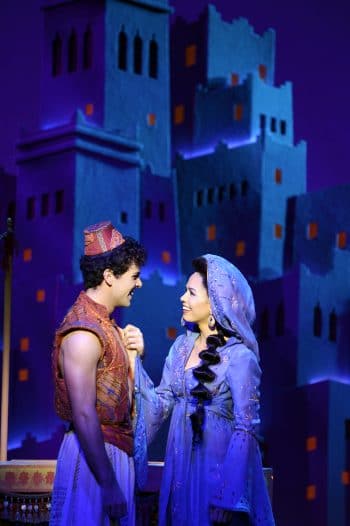
I’m curious to know how you came to Aladdin, and where you started when looking at adapting it for the stage. Did you begin by considering story and dialogue, or with musical themes?
It’s a sort of crazy story. Originally, I was brought into Disney and they had a list of titles, and they said they wanted to make them into scripts to license out to schools and that sort of thing. I completed a really straightforward blueprint for Aladdin following the same story as the musical, turned it in, and they said, “Alan Menken wants to meet with you.” Of course, that was a little pressure, a little intimidating… We went up to his beautiful compound and he said, “I think what you did is fine, but my goal is to get as many of the songs as Howard Ashman and I wrote, songs that were cut from the movie, into this show. This is a way to get those songs seen and heard again.”
I’m a huge Howard Ashman fan, he’s the reason I wanted to write lyrics, so I was thrilled. I got to see all these songs I never knew about, but it became a sort of puzzle I had to figure out, how do we put these songs together and make them make sense in the story?
How did the collaboration process work for Aladdin?
It was interesting, when I had that first meeting with Alan, he brought out the lyric sheets and the treatment that Howard had written years ago, and he said, “Oh, it smells like the 80s!” It was actually mimeographed, typewritten… It was really inspiring, because that let me know what they were thinking when they originally had the idea to tell the story in this way. After that, we did a reading of the version I wrote with the trunk songs and a couple of new songs that Alan and I had written, and that’s when the show went from just going to be licensed to schools to maybe going to Broadway. That was the point when Casey Nicholaw (our director) joined us, after that reading where we got the green light. Casey was so collaborative, I’ve worked with him several times and I trust his judgement so much. He’s so good at storytelling and he’s so good at knowing what’s not working when I can’t see it from a million miles away. One time they were doing ‘A Whole New World’, and he said, “Hmm, I think the carpet is turning four seconds too late.” Everyone argued and then they checked, and of course he was right. I think when you have a really good director who knows what he’s doing, you thank the heavens, and you’re thrilled to collaborate.
Why do you believe the story of Aladdin appeals to children?
It’s funny, I think in a way the story is about wanting to be something you’re not, and I think we’ve all felt that, we’ve all thought, “if only I had the power to make myself into something better…” I think the story is relatable, not just to kids but to everybody, and that’s why we get date nights to the show, we get all kinds of ages. It’s a story about denying who you really are, then at the end, deciding to be yourself and suddenly everything you want happens, all your dreams come true. It’s a fairy tale and it sounds schmaltzy, but it’s something I think everybody learns in their life, you have to be yourself, you can’t pretend to be something you’re not, and once you accept yourself and present yourself as you are to the world, everything changes.
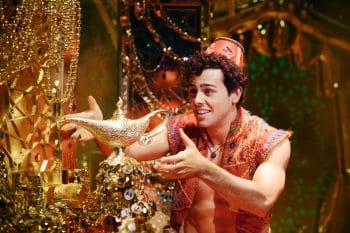
Did you know that Aladdin would end up this big when you took on the project? Was the enormity of the Disney juggernaut something you considered as you were writing?
No! Because originally it was just going to be licensed out, so I had no idea. It was just a fluke. Sometimes I think, oh my god, what if I had looked at that list and chosen Dumbo? None of this would have happened (or at least my involvement in it.) It’s stunning to look back and see what’s happened with the show. We went through a lot of rough times and bleak times, where we questioned if it was going to work, are we going to get it there? It was a tough road to get to Broadway, so it was sort of doubly surprising that the show made its way around the world, just… Thank the theatre gods.
It’s crazy, the thing I love most about this show is that for a lot of people, especially kids and younger people, it is their first introduction to live theatre. I think back to my first show, thinking, “wow, this [art form] exists?” We are now doing that for a bunch of people who maybe have never seen a live musical. This might get ’em hooked.
Aladdin begins performances in Brisbane on 20 February and will take a magic carpet ride to Perth in July. Tickets and performance information for both cities can be found here, chookas to the cast for another fantastic adventure in Agrabah.

